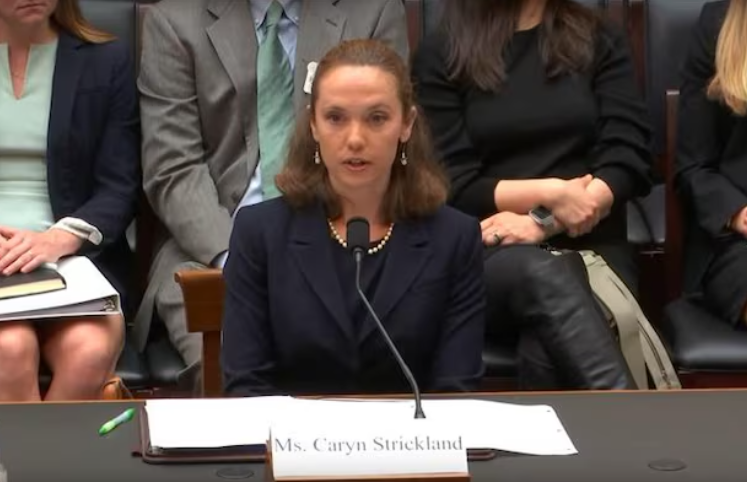A federal judge ruled on Friday that Caryn Strickland, a former public defender in North Carolina, failed to prove that U.S. federal judiciary officials mishandled her sexual harassment complaint against her supervisor. U.S. District Judge William Young found that Strickland did not establish during a non-jury trial in Asheville, North Carolina, that federal officials violated her constitutional rights to equal protection under the law and due process.
The 285-page ruling, which emerged from a rare trial focusing on how the judiciary handles workplace misconduct complaints among its 30,000 employees, highlighted that these workers are not protected by anti-discrimination statutes like others nationwide. Strickland had testified to Congress in 2022, along with other female former judiciary employees, in support of legislation to expand judicial employees’ rights. Democratic lawmakers continue to advocate for such reforms while urging the judiciary to take stronger measures against workplace misconduct.
Judge Young supported these calls for reform, stating that despite Strickland’s loss, the “inconvenient truth” remains that her career suffered after she made a “good faith” sexual harassment complaint. He acknowledged that the current legal framework leaves her without redress, which he noted should not be a point of pride for federal judges or administrators.
Strickland’s husband and lawyer, Cooper Strickland, declined to comment on the ruling. A spokesperson for the Administrative Office of the U.S. Courts stated that the office is reviewing Judge Young’s order and his recommendations for reform. She reaffirmed the judiciary’s commitment to maintaining a respectful workplace.
Strickland worked from 2017 to 2019 in the Western District of North Carolina’s Federal Public Defender’s Office, which provides legal representation for indigent defendants. In 2020, she sued the judiciary, alleging that officials mishandled her complaint against her supervisor, J.P. Davis, and that her rights were violated as a result.
Strickland cited a May 18, 2018 email from Davis, in which he offered to help her career in exchange for personal favors, saying he had a “plan” to raise her pay but added, “just remember I deal in pay-for-stay :).”
She claimed that the top federal defender in her district responded to her complaint with deliberate indifference and that officials mishandled the employment dispute resolution process managed by the 4th U.S. Circuit Court of Appeals. Strickland argued that the harassment forced her to resign and sought at least $692,881 in damages for lost earnings.
However, Judge Young concluded that although the investigation into her claims was flawed and excessively prolonged, it was not a “sham” probe. He noted that the top federal defender displayed hostility towards her claims, but this hostility did not stem from gender bias, and his involvement in resolving her claims was “limited.”
Judge Young emphasized the need for the judiciary to reform the system, suggesting that judges should take a more active role in addressing sexual harassment complaints earlier in the process. “If we judges are serious about sexual harassment, we must own the process,” Young wrote.
The case is Strickland v. United States, U.S. District Court for the Western District of North Carolina, No. 20-66.

